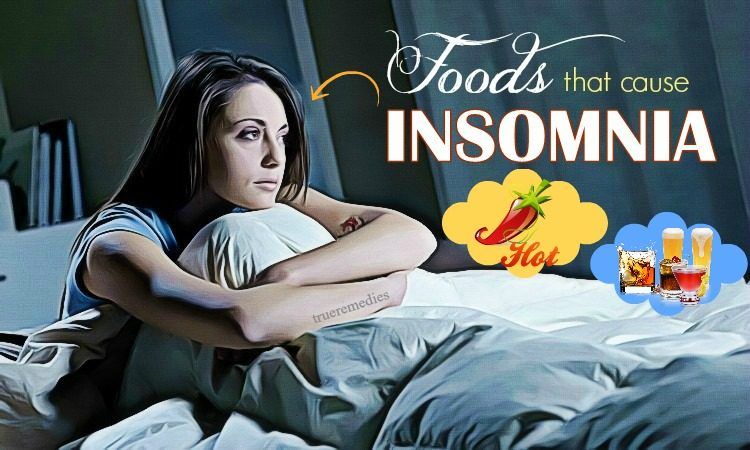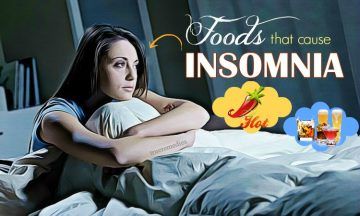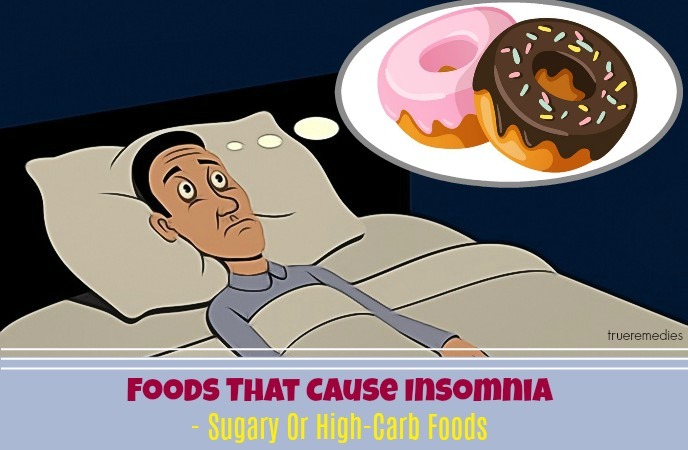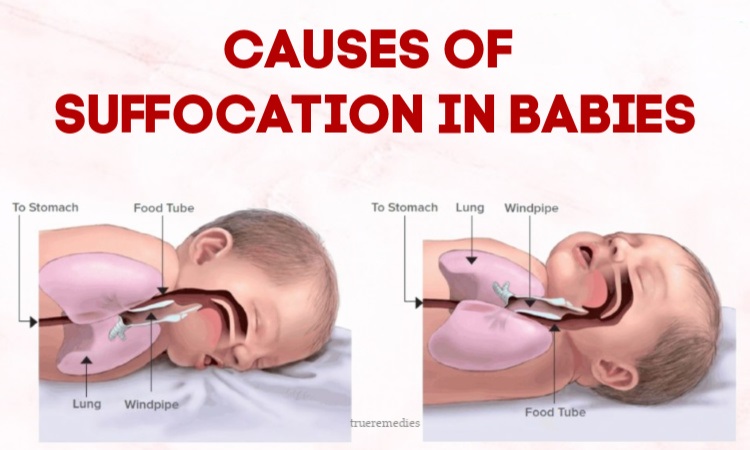Updated: 10/18/2019
If you have trouble sleeping and tried many sleep-inducing techniques or even medications without significant results, you should pay attention to your daily diet. Actually, there are a lot of tips and tricks to implement to get better sleep. One of the most underrated tips that really go far in boosting your sleep’s quality is making the right dietary choices. It might sound surprising, but the foods we eat could have a big impact on our ability to get a good night’s sleep[1]. Here we will reveal to you a list of 7 common foods that cause insomnia. Try to avoid them if you find yourself regularly munching on them. Let’s check out on TrueRemedies.com!
1. Coffee
Coffee is a common drink for many people. However, there is a simple rule that you need to keep in mind when drinking coffee: no coffee at least 6 hours prior to bedtime. Caffeine in coffee is a notorious nemesis in anxiety and sleep disorders. Caffeine increases stress hormone levels, keeps you awake by blocking the sleep-enhancing adenosine receptors within your brain. It is not recommended to have a cup of coffee after lunch because it may interfere with sleep by keeping your mind overactive[2] [3]. In order to see if coffee is your sleep disorder’s culprit, you should steadily cut back this drink in your daily routine.
2. Spicy Foods
Despite spicy foods are delicious and come with some noticeable health benefits, eating them before bedtime could be a bad idea. Spicy foods are harsh on your gastrointestinal tract. Actually, gastrointestinal discomfort is considered a leading cause of insomnia. Eating spicy foods may cause indigestion, heartburn, and acid reflux, which may prevent you from getting a restful night of sleep.
Thus, you had better restrict your consumption of such harsh foods and choose food ingredients which can help heal your gut instead.
3. Oats
Oats are consisted of the chemical melatonin which often prepares the human body for rest. Nonetheless, its high content of soluble fiber may have secondary effects. If oats are consumed before bed, they do not have enough time to digest properly. As a result, this food can lead to indigestion, gas and heartburn. All of these problems result in an upset stomach and active your senses, thereby keeping you up at night.
TrueRemedies Partner Solutions

Need a Help from the Leading Expert Online, Available 24/7?
They’re all here and ready to answer your questions online or by phone. Keep asking questions until you get the answer you need.
4. Sugary Or High-Carb Foods
The sweets like cookies, chocolate cake, or any other desserts could give spike to your blood glucose levels and make your energy levels be out of sync. In fact, single sugars such as fructose and galactose, contribute to irregular sleeping patterns if they are consumed late at night. Thus, sugary or high-carb foods are considered foods that cause insomnia.
5. Alcohol
Alcohol could be helpful in relaxing you and assisting you in falling asleep. Nonetheless, in contrast to popular belief, alcohol does not help induce sleep. It usually disrupts your sleep and deters you from entering deeper phases of sleep cycles. As alcohol begins to wear off in the middle of the night, your sleep quality will be disturbed significantly[4]. Mini-withdrawal effects could range from restless sleep to bad dreams. Therefore, alcohol consumption ought to be limited to just one drink a day for women and two drinks a day for men.
6. High-Fat Foods
High-fat foods are among unexpected foods that cause insomnia. Foods which contain a large amount of fat have been linked to fragmented, poor sleep. Fat may trigger digestive processes and result in a buildup of stomach acids. If you lie down after eating high-fat foods, it may creep into esophagus and cause discomfort[5].
Moreover, a high fat diet can also mess with orexin production. Orexin, along with melatonin, is one of neurotransmitters helping regulate the sleep – wake cycle.
7. High-Protein Foods
Foods which are high in protein release amino acids into the blood. If these acids flood the human body, they are used to synthesize stimulant like epinephrine and norepinephrine, the excitatory neurotransmitters, and thermogenic thyroid hormones. The excitatory neurotransmitters can keep our brain active while thyroid hormones accelerate the metabolic rate of the body. Unfortunately, these effects disrupt sleep. Thus, you had better avoid eating high-protein foods in order to get sound sleeps.










